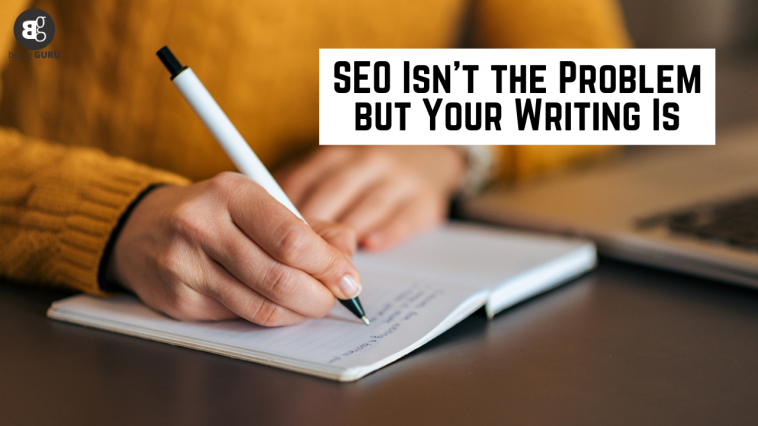Your website is still as flat as a pancake without enough flour even if you’ve been working very hard on your content and following all of Google SEO best practices.
You have properly added internal links updated your meta descriptions, and thoroughly reviewed your keywords.
Why aren’t you ranking you ask?
The ugly truth is that you can’t advance because of your content, not SEO.
I did say that yes.
However, how?
But you will soon learn.
Let’s examine why your content might be the true issue and how to fix it before Google forgets you even exist.
1. You’re stuffing keywords. Similar to a DJ who is stuck on repeat in the hopes that nobody will notice.
The title pretty much says it all. But I will still tell it.
You are aware of the keywords you must rank for. That’s great.
However, if you plan to include them in every other line you’re offering Google a loud warning that says ‘I’m trying too hard’.
And you know what? The algorithms used by Google have changed.
I can guarantee that they are not impressed by keyword stuffing which they can recognize at a mile distance.
Rather, focus on semantic SEO.
Make use of synonyms natural language, and similar terms to provide context for your writing.
Now that Google is more intelligent it can understand the meaning of your article, so write naturally.
Use keywords, but most importantly add value in the process.
Read More: How to Write Engaging and SEO-Friendly Blog Posts? 7 Best Practices.
2. Your Content is All Fluff No Substance.
There is no time for nonsense.
Your readers will keep coming off your content as quickly as a tennis ball on a hard court if it is full of generic information unclear advice or empty words.
Content that speaks a lot without actually saying anything may be found all over the internet. Don’t write like that.
How should I proceed?
Give details.
Provide genuine value. Analyze ideas offer practical guidance, and provide specific examples.
Instead of feeling as though they have wasted five minutes of their lives readers should feel as though they have gained knowledge from your page.
People are more likely to share links to and return to your content if it is helpful.
And you know what? Google likes all of that.
3. You’re Writing for Bots Not Humans
When you’re trying to rank it’s easy to write for Google bots but here’s something you might not realize. Content that people enjoy is ranked by Google.
You’re doing it incorrectly if achieving a specific keyword density is more important to you than offering a satisfying reading experience.
What matters are people? They are not algorithms and are the ones clicking, reading, and converting.
Write with your audience in mind. Recognise their difficulties, address their inquiries, and resolve their issues. The SEO will start to take shape after your article is read by others.
Read More: This Is How I Humanize My Writing, as a Pro-AI Writer and Editor
4. Your Writing Isn’t Skimmable
Nowadays, nobody has the patience or time to read lengthy passages of text.
You’re losing readers before they’ve even begun if your writing still appears to be a massive paragraph explosion.
Even if you have the most brilliant ideas in the world they will be useless if your readers are unable to quickly recognize the main ideas before becoming disinterested.
Thus, write in a way that is easy to read.
Make use of brief paragraphs, bullet points, and subheadings. Use infographics or pictures, bold important words, and divide the text.
This will not only make your work easier to read, but it will also enhance the user experience which is something Google is quite worried about.
5. You’re Not Updating Your Content
If it’s still relevant old content might be an SEO golden gem.
It’s probably not helping you if your 2017 blog article is just sitting there gathering digital dust.
You should go back and edit those older posts with new information, trends, and ideas because Google loves new material.
Verify that the entire article is up to date and optimized for the most recent best practices. You may give your old posts a fresh start on life and help them go up the search results page.
Key Points
- SEO is important it is not the main objective of content production.
- No amount of SEO magic can make up for poor writing.
- Google and your audience will always favour content that solves issues, engages readers, and encourages them to return.
- Examine your text carefully before blaming your SEO strategy for your poor-performing content. That could be the issue.





